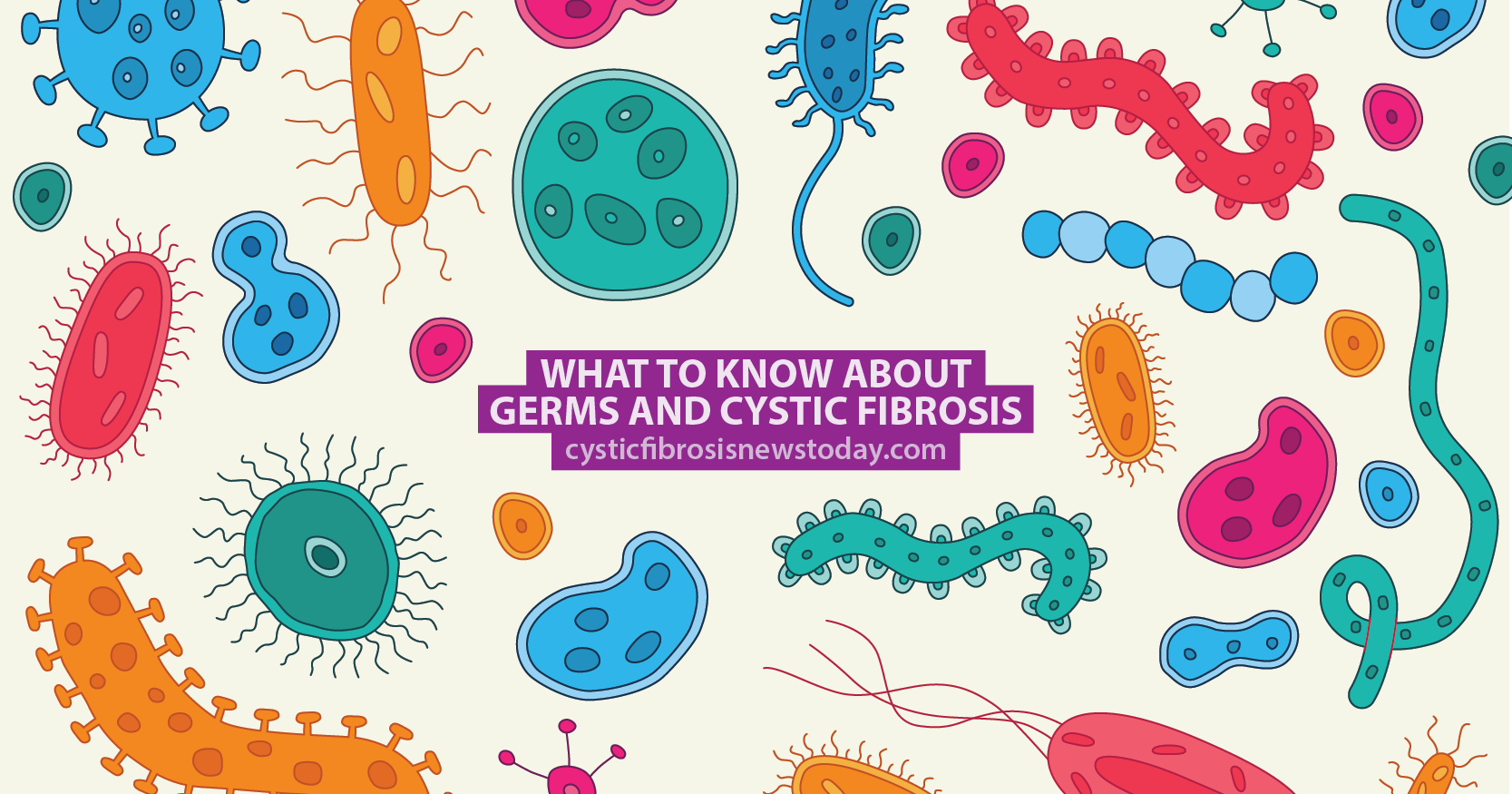What to Know About Germs and Cystic Fibrosis
Written by |

May was Cystic Fibrosis Awareness Month. All month the CF community worked together to raise the profile of the disease and to help educate the public about what life is like for those who live with the condition.
Cystic fibrosis is a genetic disease where mucus builds up in major organs like the lungs, pancreas, liver and sex organs, which can lead to problems with breathing, digestion, fertility and infections. (Source: National Institute of Health).
This excess mucus makes CFers very susceptible to lung infections. They need to be diligent with hygiene and be careful not to pick up germs. However, patients can take steps to safeguard themselves against germs and help prevent infections.
What are germs?
According to the Cystic Fibrosis Foundation, germs are invisible microscopic organisms that have the ability to grow and multiply. They’re found everywhere and come in the form of viruses, bacteria, molds and yeasts.
Germs have adapted to live in all environments from the very cold to the very hot. While some need hosts to live on (e.g., humans and animals), others can thrive in the open air.
How are germs spread?
Germs are spread in three major ways: from person to person through physical contact such as kissing, having sex, and shaking hands; from person to person through indirect contact like shared surfaces or items; and finally, germs can be airborne and spread through coughs and sneezes.
MORE: Five tips to help prevent lung infections.
Why are germs more dangerous for people with cystic fibrosis?
People with cystic fibrosis have a buildup of sticky mucus in their lungs making it easy for germs to get trapped and multiply, which can lead to serious infections.
Lung infections can seriously impair lung function and become life-threatening for those with CF. When a person with CF has a lung infection, the immune system sends white blood cells to the lungs to fight off the germs, however, this invasion of white blood cells causes the lungs to become inflamed, leading to the production of more mucus. This excess mucus allows the germs to breed even more, creating a vicious cycle.
Which germs are especially dangerous for people with cystic fibrosis?
There are some germs associated with lung decline in people with cystic fibrosis. These include:
- Burkholderia Cepacia Complex (B.cepacia): this germ thrives in wet and damp places such as soil and water. This is particularly difficult to treat once a patient is infected.
- Methicillin-resistant Staphylococcus Aureus (MRSA): this infection can be spread by contact and is often rife in hospital environments. It’s resistant to most antibiotics.
- Nontuberculous Mycobacteria (NTM): This type of germ is found in many people with CF. It lives in soil, water, and swamps. NTM is resistant to many disinfectants and can thrive in many inhospitable conditions.
- Multi-drug-resistant Pseudomonas aeruginosa (P.aeruginosa): There are thousands of different strains of this bacteria and people with CF often pass the more difficult-to-treat strains to each other. The germ has also been linked to dental bacteria.
MORE: Tube feeding could be the source of drug-resistant bacteria in some CF patients.
How to avoid germs
There are basically three ways to avoid or limit your contact with germs. The first is to be extra vigilant about washing your hands. Clean your hands after touching shared surfaces and items, before eating, after chest physiotherapy, and before and after visiting the doctor or hospital.
Be sure to cough or sneeze into a tissue and then throw it away and wash your hands. If you don’t have a tissue, then sneeze or cough into your elbow or upper arm, rather than your hands.
Finally, preventing is better than curing, so vaccinations are important — particularly the flu vaccine.
How to avoid cross-infections.
In an ideal world, two CF patients shouldn’t meet face to face, but many families have siblings with CF so that’s not always possible. To avoid cross-infections, it’s recommended you keep six feet away from others with CF and don’t have any physical contact or share items. Also, stay away from non-CF people who are sick.
MORE: Cystic fibrosis cross-infection risks.
Cystic Fibrosis News Today is strictly a news and information website about the disease. It does not provide medical advice, diagnosis or treatment. This content is not intended to be a substitute for professional medical advice, diagnosis, or treatment. Always seek the advice of your physician or other qualified health provider with any questions you may have regarding a medical condition. Never disregard professional medical advice or delay in seeking it because of something you have read on this website.






